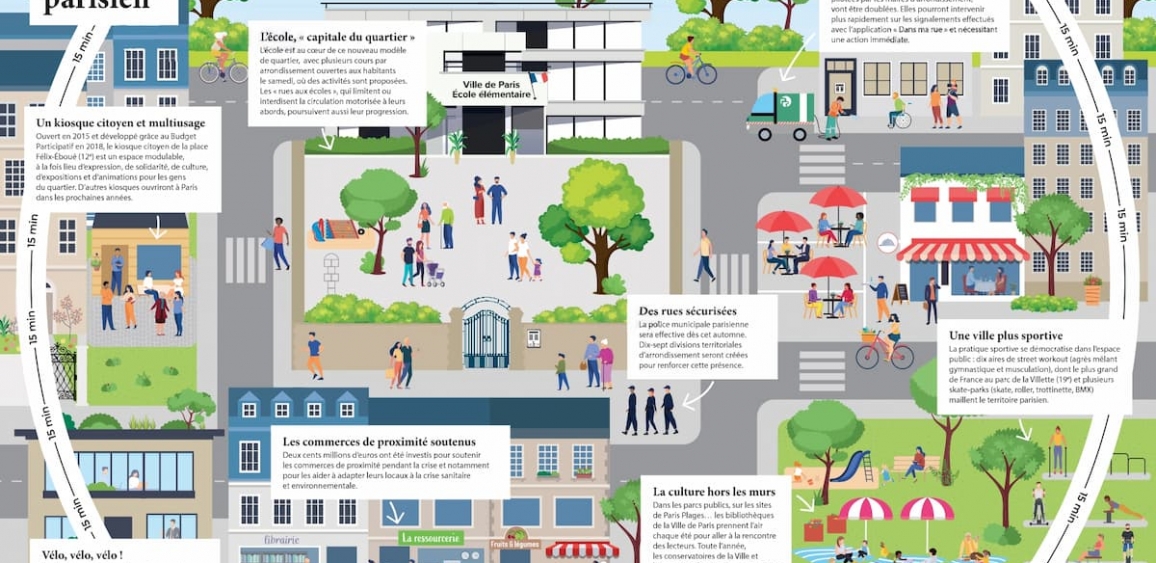Curated by
Carolina Giaimo, Director of Urbanistica Informazioni
Elena Marchigiani, National editor Urbanistica Informazioni
The themes that the new Urbanism Information series explored in 2021 include issues directly affecting welfare and quality of urban living, considering the challenges faced by urbanism from a society in transformation from economic-social, ecological and environmental, energy and technological perspectives.
Through the plural gaze of scholars and experts, the Focus developed in No. 300 of UI investigates the rhetoric of the ’15-20-30 minute city’ as an optimal spatial-functional model marked by the principles of proximity. A model that, also in reaction to the measures of social distancing induced by the pandemic crisis, has powerfully returned to the center of urban agendas as a useful device for interpreting some of the crucial nodes that cities and policies must address: sustainability, innovation and inclusion especially in the field of educational and social-health, recreational-sports and public mobility services, with respect to which, especially in large urban centers, it is necessary to ensure the polycentrism of rights.
Although the principles underlying the model of the city of ‘n. minutes’ are rooted in the persistent reference in urban planning theories and practices to the organization of expanding cities by units of ‘conforming size,’ their application to the regeneration of the existing stimulates careful reflections.
The definition of a ‘right distance’ between urban practices and functionalities today evades a mechanical parameterization and measurability of densities and movements, coexisting functions and principles of equal distribution. In contemporary cities, proximity is often still a ‘hidden dimension’: a performance to be enacted by working on the specific conformation of different settlement situations and the endowments already present as factors capable of inhibiting or activating new lifestyles.
The meeting proposes a multi-voiced discussion on some concrete implications that the theme of proximity may have for contemporary urban planning practice. In systemizing, at the local scale, the many issues (social, economic, environmental) at the heart of urban design, what is its concrete utility in renewing policies and tools for governing cities? What are the repercussions on a redistribution of urban economies and values? What are the challenges in rethinking how and when to operate equipment, services, places of sociality?
PROGRAMME
Introduction and coordination
Carolina Giaimo, Director UI
Dialogano:
Elena Marchigiani, National editor UI
Paolo Mazzoleni, Architect, Councillor for Urban Planning City of Turin
Marco Mareggi, PhD, Professor of Urban Planning PoliMI
Simone Rusci, PhD, Professor of Urban Planning UniPi
COnclusions
Elena Marchigiani and Carolina Giaimo, Urbanistica Informazioni
Italiano

Contributions